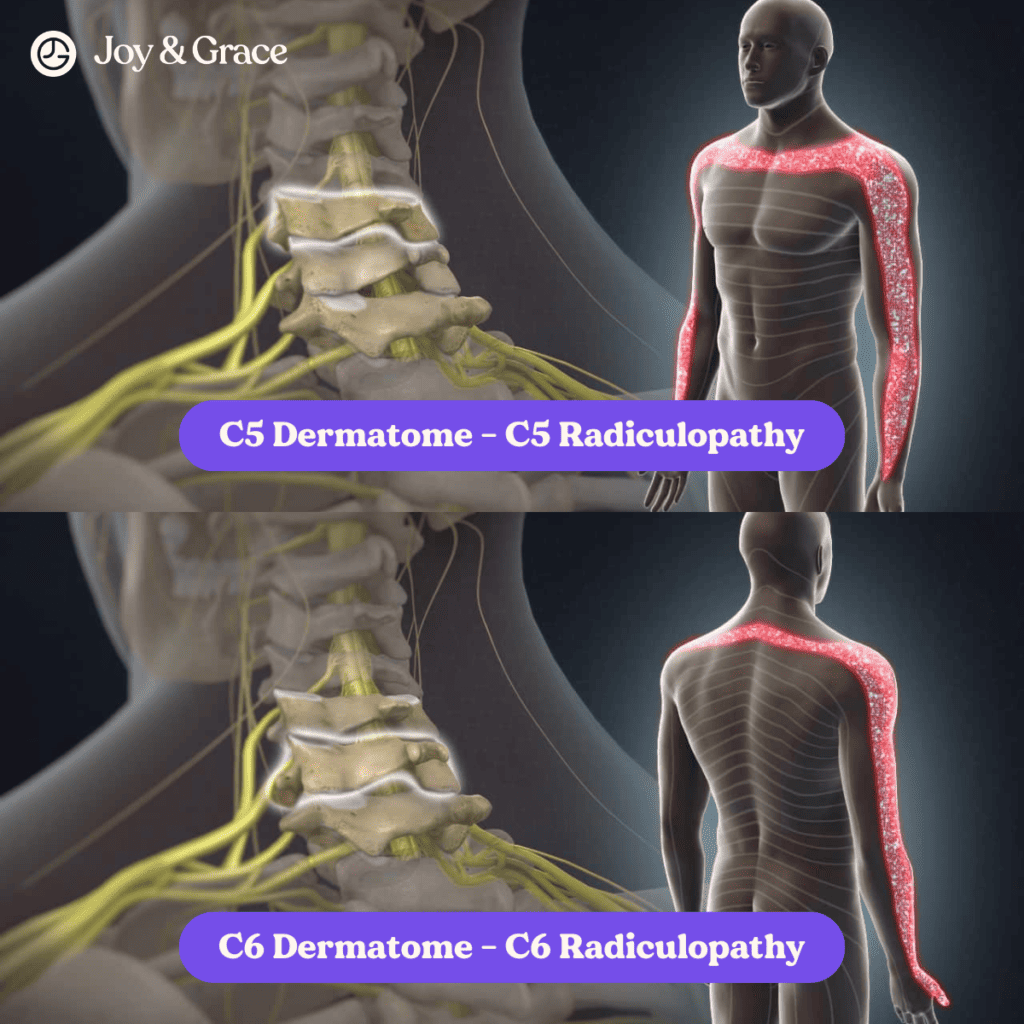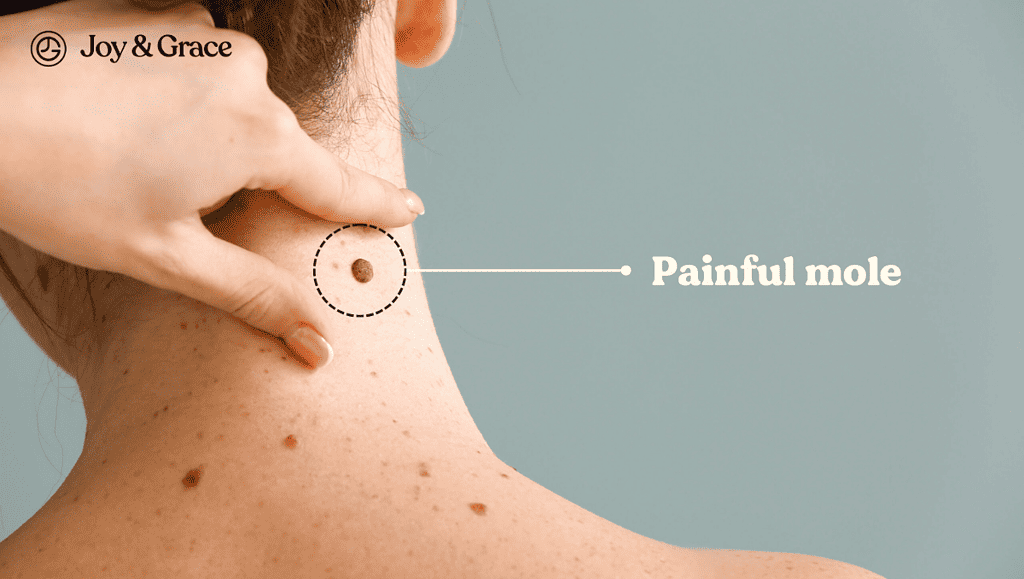You're ready to face the day, but your shoulder pain holds you back. You're not alone; many people face this challenge. Often, we hear the question, 'Will this shoulder pain ever go away?'
Let's explore the journey of managing persistent pain together.
Why Is My Shoulder Pain Not Going Away This Time?
Sometimes, shoulder pain that used to go away might linger longer than expected. As we pass through various phases of life, our bodies respond differently to pain. Factors that didn't bother us before might now play a significant role in our healing process. Here's what could be happening:
- Incomplete or improper healing
If you had a shoulder injury or strain, it might have simply not fully healed yet. Some injuries can take a long time to heal completely. We know how frustrating it is to miss our favorite activities, but we must be patient with our bodies and let them recover.
- Overwork and lack of rest
Overworking your shoulder muscles without enough rest can cause long-lasting pain. As we gracefully exit our prime, our bodies might not boast the same endurance they once did. And they probably don’t heal as fast, too.
If you repeatedly strain your shoulders and don't give your muscles time to recover, it’s challenging for them to heal properly. This ongoing strain can make the pain worse over time.
- Poor Posture
Slouching or hunching can strain the shoulder muscles and lead to chronic pain. Try to think if you've recently been working in a less-than-ideal posture.
- Incorrect Sleeping Position
Yes, the way you sleep can also be a factor. Sleeping on the same side or in an awkward position can also cause shoulder pain that persists if not properly addressed.
- Stress
Stress and emotional factors can further escalate shoulder pain. Stress can subconsciously lead to excessive muscle tension, worsening the problem. Over time, this constant tension in your shoulder muscles could result in persistent pain that won't go away.
According to one study, emotional distress was associated with persistent shoulder pain even after physical therapy.
Meanwhile, in another study, work-related stress was a risk factor for chronic neck and shoulder pain. This association was seen more in men than in women. Furthermore, exercises did not reduce the risk of chronic pain in people frequently exposed to work stress.

As you can see, some of our lifestyle habits could unknowingly contribute to the problem. Fortunately, most of these can be addressed; we’ll discuss that later.
That said, persistent shoulder pain may also be due to various underlying conditions. If left untreated, these conditions can cause chronic shoulder pain. Because of this, persistent shoulder pain shouldn’t be thrown under the rug.
What Causes Shoulder Pain That Won't Go Away?
Chronic shoulder pain refers to persistent or recurring pain in the shoulder region that lasts for an extended period. According to the American Family Physician Journal, you’re already dealing with chronic shoulder pain if it lasts more than six months.
Chronic shoulder pain can result from various underlying causes, including:
- Rotator Cuff Injuries
The rotator cuff is a group of muscles and tendons that stabilize and move the shoulder joint. Injuries, such as tears or inflammation in these parts, can lead to chronic pain.
Common symptoms include:- Persistent shoulder pain, often worsening at night
- Weakness and pain with overhead activities or rotating the arm
- Limited range of motion
- Crackling or popping sensation
- Tendinitis
Tendinitis is the inflammation of the tendons of the shoulder. It can be acute due to injury or chronic. Chronic tendinitis can occur due to overuse, repetitive motions, or age-related degeneration.
The symptoms of tendinitis include:- Gradual onset of shoulder pain
- Swelling and warmth
- Tenderness in the affected area
- Bursitis
Bursae are tiny sacs filled with fluid that cushion and reduce friction between the shoulder joint. Inflammation of these bursae can lead to bursitis, resulting in chronic shoulder pain.
Common symptoms of bursitis include:- Persistent shoulder pain
- Swelling around the shoulder joint
- Tenderness
- Limited range of motion

- Frozen Shoulder (Adhesive Capsulitis)
This condition involves the thickening and tightening of the shoulder capsule. It typically progresses in stages and can last for a long time. This condition is characterized by a gradual onset of pain that worsens over time. It can eventually lead to stiffness and a limited range of motion.
A frozen shoulder is characterized by:- Gradual onset of pain
- Increasing stiffness
- Limited range of motion
- Pain even at rest
- Arthritis
Shoulder osteoarthritis is another common cause of persistent shoulder pain. As we age, the cushioning cartilage in our joints can wear away, leading to inflammation, pain, and reduced mobility. For some, the shoulder pain doesn't go away and becomes a part of daily life.
Other forms of arthritis that can cause chronic shoulder pain include rheumatoid or gouty arthritis. Symptoms of arthritis can include:- Chronic, aching shoulder pain
- Stiffness, especially after inactivity
- Reduced shoulder mobility
- Swelling in the affected joint
- Fractures or Dislocations
A previous shoulder fracture or shoulder dislocation can result in chronic pain. This is more common if the injury wasn't properly treated or healed. Symptoms that can point to fractures or dislocations include:- Persistent pain, especially with movement
- Swelling and bruising
- Deformity or misalignment
- Limited range of motion
- Nerve Compression or Irritation
Medical conditions that cause nerve compression in your neck, shoulder, or chest can also cause persistent shoulder pain. Symptoms of nerve compression include:- Radiating pain down the arm
- Tingling or numbness
- Muscle weakness
- Pain triggered by specific movements

- Muscle Imbalances
Muscle imbalances or weaknesses in the shoulder and upper back can also lead to chronic pain. Muscle imbalances can cause abnormal shoulder movements or cause you to use your shoulders more often. This can eventually lead to chronic shoulder pain.
Possible symptoms of muscle imbalances include:- Chronic shoulder pain
- Difficulty in maintaining normal shoulder movements
- Muscle fatigue during activities
- Postural changes to compensate
How Long Is Too Long For Shoulder Pain?
If you're worried about your shoulder pain not improving over time or interfering with your daily activities, it's time to see a doctor. Trust your instincts, and don't wait too long if the pain is affecting your life.
Generally, minor shoulder pain from a sprain or strain should ease within two weeks. As we mentioned above, shoulder pain is already considered chronic if it lasts more than six months.
How Can I Find Relief From Shoulder Pain That Won’t Go Away?
To find relief from stubborn shoulder pain, it's important to remember that sometimes a doctor's visit is necessary. Certain shoulder conditions won't improve without professional treatment.
However, if your pain is manageable and not disrupting your daily life, there are beneficial lifestyle changes you can try.
While they might not completely cure pain in some people, they're safe and can still improve overall health. Here are some of the measures we’d recommend trying:
- Modify Your Activities
Limit, modify, or avoid activities that hurt your shoulder. This doesn't mean you have to stop moving altogether! Seek out low-impact exercises like yoga or water aerobics that can help keep you fit without aggravating your shoulder.
Just remember to avoid any motions that lead to sharp pain or discomfort. If you're unsure about what's safe, consulting with a medical expert is a smart move to ensure you're on the right track.
- Maintain Good Posture
Slumping or slouching can intensify shoulder pain. Aim to keep your shoulders relaxed, down, and back to encourage proper alignment. This might take some daily mindfulness, but your shoulder will thank you.
- Implement Healthy Eating Habits
Foods rich in omega-3 fatty acids, such as salmon and chia seeds, can help reduce inflammation. Equally, try to limit inflammation-causing foods, like those high in salt or sugar.
- Emphasize Rest and Relaxation
High stress levels can contribute to chronic pain, including stubborn shoulder pain. Develop a relaxation routine like deep breathing, meditation, or reading a good book.
- Consistent Physical Therapy
Living with shoulder pain might involve regular physical therapy sessions. Specific exercises can improve mobility, strengthen the surrounding muscles, and relieve shoulder pain.
Shoulder pain doesn't happen in a vacuum. It's often linked to the way you use your whole body. So, focusing on overall health and wellness can have a positive effect on this nagging shoulder pain.
As mentioned earlier, remember that these lifestyle changes may provide only temporary relief. For a lasting solution and to understand the root cause of your pain, consult a qualified healthcare practitioner.
What Types Of Doctors Treat Unresolved Shoulder Pain?
Experts from different medical disciplines can treat persistent shoulder pain. The specific professional you'd need might depend on the cause of your discomfort.
- Your primary care physician should always be your first point of contact when you’re dealing with unresolved shoulder pain. Your primary physician knows you unlike any other, especially if you’ve had a longstanding patient-doctor relationship. They can identify any lifestyle factors contributing to the pain and provide initial treatment. If the pain persists, they can refer you to a specialist.
- Orthopedic surgeons can provide targeted care if your primary physician's initial treatments don't resolve the shoulder pain. They're trained to handle a wide range of bone and joint problems, including those stemming from wear and tear, injuries, and diseases.

- Another expert in this field is a rheumatologist. They can help if your shoulder pain is from an autoimmune disease like lupus or rheumatoid arthritis.
- Physiatrists, medical doctors specializing in rehabilitation, are key in treating shoulder pain. They devise treatment plans that physical therapists implement through exercises, massages, and other techniques to reduce pain and enhance mobility.
- Sports medicine physicians also treat shoulder problems, especially from athletic activity. Their fitness programs can relieve pain and keep you active, whether you have a rotator cuff tendon tear or joint irritation from any sport.
What Tests Are Done To Diagnose The Cause Of Lingering Shoulder Pain?
Your healthcare provider will begin by reviewing your medical history. Then, they will conduct a physical examination. During this exam, they will look for visible abnormalities, swelling, or deformities. They will also assess your shoulder's range of motion to understand the level of discomfort and mobility issues you're facing.
If the pain is particularly stubborn, they might recommend imaging tests to understand the underlying cause. The most common tests include:
- X-rays provide detailed images of your shoulder bones, helping to identify fractures or arthritis.
- Magnetic resonance imaging (MRI) offers a comprehensive view of the shoulder joint. This is crucial for detecting soft tissue conditions like rotator cuff tears or tendonitis.
In some cases, additional tests like ultrasound or computed tomography (CT) scans might be necessary.
Your healthcare provider might also order a blood test if they suspect an underlying condition. This may be useful in conditions such as rheumatoid arthritis.
These diagnostic tests are essential tools that help pinpoint the cause of your persistent shoulder pain. Once they have the correct diagnosis, your doctor can provide you with personalized treatment options.
What Medications Are Used To Treat Long-Lasting Shoulder Pain?

While there's no one-size-fits-all solution for managing chronic shoulder pain, several medications can help you find relief. These can include:
- Nonsteroidal Anti-Inflammatory Drugs (NSAIDs)
NSAIDs, such as ibuprofen, are often the first line of defense against shoulder pain. They work by reducing inflammation and alleviating pain. However, using them under medical supervision is essential. Prolonged use can lead to adverse effects on the stomach and kidneys.
- Acetaminophen (Tylenol)
Acetaminophen is a pain reliever that does not possess anti-inflammatory properties. It can be a suitable option for those who cannot tolerate NSAIDs or for managing mild to moderate shoulder pain. As always, adhering to the recommended dosage is crucial to prevent liver damage.
- Opioids
In severe shoulder pain cases, opioids might be prescribed for short-term pain relief. Due to their addictive nature, they are used cautiously and under strict medical supervision.
- Corticosteroid Injections
Steroid injections into the shoulder joint can provide rapid relief from inflammation and discomfort. While effective, this approach only offers temporary relief. It should be combined with other therapies for long-term management.
It’s important to note that medications aren’t enough to address chronic shoulder pain. Managing shoulder pain that won’t go away requires a holistic approach. It should also include the lifestyle changes we mentioned earlier.
When Should I Consider Surgery For Shoulder Pain That Won't Go Away?
If the pain keeps interfering with your daily life even after conservative treatments, surgery might be an option. But it's not a decision to rush into. It’s a decision you should make after having extensive discussions with your healthcare provider.
Keep in mind that not all causes of pain require or respond well to surgery. Surgery is typically used as a last resort or for severe cases such as complete rotator cuff tears or fractures.
Here are some factors to consider when deciding if surgery might be appropriate for your situation:
- Severity of Pain
If your shoulder pain is severe and interferes with your daily life, surgery might be considered.
- Diagnosis
A clear diagnosis of the underlying cause of your shoulder pain is crucial. The conditions we mentioned above might require surgical intervention.
- Functional Limitations
If your shoulder pain significantly limits your ability to perform basic functions, such as:- Reaching
- Lifting
- Dressing
Surgery might be considered to improve your range of motion and overall function.
- Patient Preferences
Your preferences and comfort level with surgery are also important. Some people prefer to explore all non-surgical options before considering surgery. Others may be more willing to proceed with surgical intervention earlier in the process.
Common surgical procedures include:
- Rotator cuff repair helps if you're experiencing shoulder pain that doesn't go away due to torn tissues in the shoulder.
- Shoulder arthroscopy is a minimally invasive procedure that uses a small camera to visualize your shoulder. It can address various issues contributing to persistent shoulder pain. This can include
- Inflamed tissue
- Bone spurs
- Torn cartilage
- Shoulder replacement involves replacing the damaged parts of your shoulder joint with prosthetic pieces.
It’s also important to know the potential risks and benefits associated with shoulder surgery. Most surgeries involve some risk, and recovery time can range from a few weeks to several months. A complete recovery could even take up to a year.
Physical therapy will also likely be a part of your post-surgery recovery process. This can help you regain strength and functionality in your shoulder.
Remember, the decision to have surgery should be made after thoughtful consideration and discussions with your healthcare team.
Takeaway
In essence, the most common causes of shoulder pain that won’t go away are often linked to lifestyle habits. It’s crucial to recognize how these daily activities contribute to persistent discomfort.
However, one cannot automatically exclude the possibility of more serious underlying health conditions. It's important to consider that such pain might not just be a consequence of age or strenuous activities but potentially indicative of deeper health issues.
Hence, when it comes to persistent shoulder pain, it’s important to seek the advice of a qualified healthcare professional. They can assess your condition and give you the correct diagnosis and treatment.
Treatment of chronic shoulder pain often requires a holistic approach. It involves modifying your lifestyle, combined with the use of medications and physical therapy. If these don’t give you relief, surgery may be an option.















